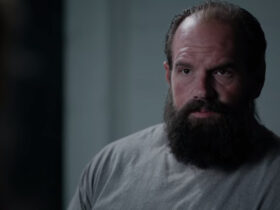Understanding Trails Carolina
Before diving into the horror stories associated with Trails Carolina, it’s important to provide some context. Trails Carolina is a wilderness therapy program designed to help troubled teens address various behavioral and emotional issues through outdoor-based activities. These programs have been touted for their unique approach to therapy, merging traditional counseling methods with challenging outdoor experiences. While there’s no doubt that many have found success and healing through these types of programs, like any institution, they aren’t exempt from scrutiny or controversy.
The Rise of Alleged Horror Stories
Over the past few years, whispers of unsettling events occurring at Trails Carolina began to circulate on various platforms. Some claimants describe a lack of basic necessities, harsh punishments for minor infractions, and alleged emotional abuse. With the digital age in full swing, online forums, social media channels, and review platforms became the sounding board for these accounts. It’s crucial, however, to differentiate between verified accounts, personal experiences, and tales that could be exaggerated or fabricated.
Examining the Claims: Physical Mistreatment
A recurring theme in the horror stories involves the alleged physical mistreatment of attendees. Some stories recount episodes of teens being subjected to extreme weather conditions without proper gear. Others suggest that participants were made to carry heavy backpacks for long distances as a form of punishment. While it’s true that wilderness therapy often incorporates physical challenges as part of its curriculum, the line between therapeutic challenge and undue hardship is blurry in these accounts.
Delving into Emotional and Psychological Strain
Even more concerning than the tales of physical strain are the allegations of emotional and psychological abuse. Some former attendees claim they were humiliated in front of peers, subjected to isolative punishments, or were made to feel worthless. These stories, if true, would contradict the very essence of therapy, which is meant to heal, not harm.
Trails Carolina’s Response
In the face of such serious allegations, Trails Carolina has not remained silent. The institution has firmly denied many of the claims, stating that their primary concern has always been the well-being of the students. They stress the intensive training their staff undergoes and the layers of oversight in place to prevent abuse. Additionally, they highlight the numerous success stories and testimonials from parents and teens who credit the program with turning their lives around.
The Impact of Exaggeration and Misinformation
In our digital age, the speed at which information spreads is staggering. While this rapid dissemination can be positive, it also allows for misinformation to spread like wildfire. There’s a real danger in blindly accepting every claim without seeking corroborative evidence or considering the source’s credibility. Exaggerated horror stories can tarnish the reputation of institutions, potentially robbing others of beneficial experiences. Thus, it’s essential to approach these narratives with a discerning eye.
Finding the Middle Ground
While some stories may be embellished, it’s equally crucial not to dismiss all claims outright. There’s always a kernel of truth in most allegations, and it’s our responsibility as a society to investigate and ensure that vulnerable populations, like troubled teens, aren’t subjected to abuse. Establishing open channels of communication, transparent oversight, and regular inspections can help ensure that institutions like Trails Carolina remain above board.
The Nature of Wilderness Therapy
Wilderness therapy is rooted in experiential learning, where individuals confront challenges in a natural environment. The approach is said to foster resilience, self-reliance, and emotional growth. However, the boundaries between therapeutic challenges and potential harm can sometimes overlap, raising questions about the effectiveness and safety of such programs.
The Voices of the Beneficiaries
Amid the horror stories, many graduates and families have praised Trails Carolina. They speak of transformed lives, newfound confidence, and repaired relationships. Their voices serve as a reminder that experiences can vary widely and that positive outcomes are also part of the narrative.
Regulatory Oversight and Standards
All therapeutic institutions, including Trails Carolina, operate under specific regulations. These guidelines are designed to ensure the safety and well-being of participants. Regular inspections, staff certifications, and adherence to best practices play a crucial role in maintaining the integrity of such programs.
The Power of Anecdotes vs. Data
While individual horror stories can be compelling, it’s essential to compare them against broader data. Studies, reviews, and surveys can provide a more comprehensive picture of an institution’s impact and practices, helping to place personal experiences in a broader context.
Addressing Potential Reforms
Given the concerns raised, it’s worth discussing potential reforms for wilderness therapy programs. Enhanced training, clearer guidelines on physical challenges, and more robust mental health support could address some of the criticisms and enhance the overall experience for attendees.
Looking Beyond the Controversy
While Trails Carolina finds itself in the spotlight, it’s a microcosm of a larger debate about therapeutic approaches for troubled youth. The discussions about its methods and outcomes encourage a broader reflection on how society addresses mental health and behavioral challenges among adolescents.
Conclusion: Sifting Fact from Fiction
The tales surrounding Trails Carolina undeniably stir emotions. They raise essential questions about the nature of therapy and the potential vulnerabilities of those who seek help. However, as with any narrative, it’s essential to separate fact from fiction. By critically examining claims, ensuring institutional transparency, and maintaining an open dialogue, we can hope to discern the reality behind the Trails Carolina horror stories.

































